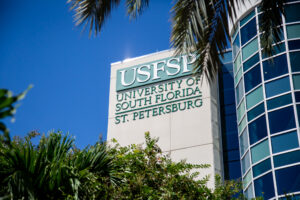OPINION: USF rightfully combats structural racism

The final report of a collaborative USF and St. Petersburg structural racism study was presented to the city council Dec. 9. former Mayor Rick Kriseman of St. Petersburg says he’s open to the report’s recommendations.
Universities should reach out to their local communities to conduct similar studies. Many aspects of racism were found to be present in modern-day St. Petersburg, and if other university communities unite nationwide, reparations could result.
Many jarring statistics were found in the final report, such as wage gaps, property inequity and health disparities.
Red-lining resulted in a modern disparity in Black home ownership. The whole of Pinellas County showed that 35% of Black households own their home compared to 69% of white households.
A significant gap was found in the wages of non-Hispanic white citizens and non-Hispanic Black citizens. Separated by field, business was the most disparaging with an average difference of $25,000 in earned yearly income.
The study suggests that ensured pay equity will boost incomes, resulting in more consumer spending that supports business growth and job creation. The city council is seemingly ready to support such recommendations.
In a December city council meeting, Kriseman stated he was thankful for the study, according to USF Newsroom. He claimed to be open to researchers’ recommendations, stating it’s up to city officials, community leaders and citizens to keep this progress going.
A supportive community is necessary when conducting studies like this, which St. Petersburg was, according to Ruthmae Sears, lead investigator of the study and USF professor, in a June 2021 interview with The Oracle.
“[The community] wants to share their story. They kind of tell you what’s wrong, and kind of tell you, ‘Why don’t you try this?’’” Sears said. “They want to make sure you see what was shared, because they know we’re really going through these artifacts.”
The final report to the city council ends with a list of solutions for issues found in the study. Among these include creating an equity department, continuing support for this work and implementing an effective accountability strategy.
“The city has agreed to share whatever data we need,” Sears said. “They’re not putting a bandaid [on it], they’re really trying to do authentic repair to somebody who’s in need.”
Other communities could learn from this study. Universities should reach out to their cities to fund such studies, allowing unified reparations to be made. We must dismantle structural racism as a nation, and doing so starts at a community level.






